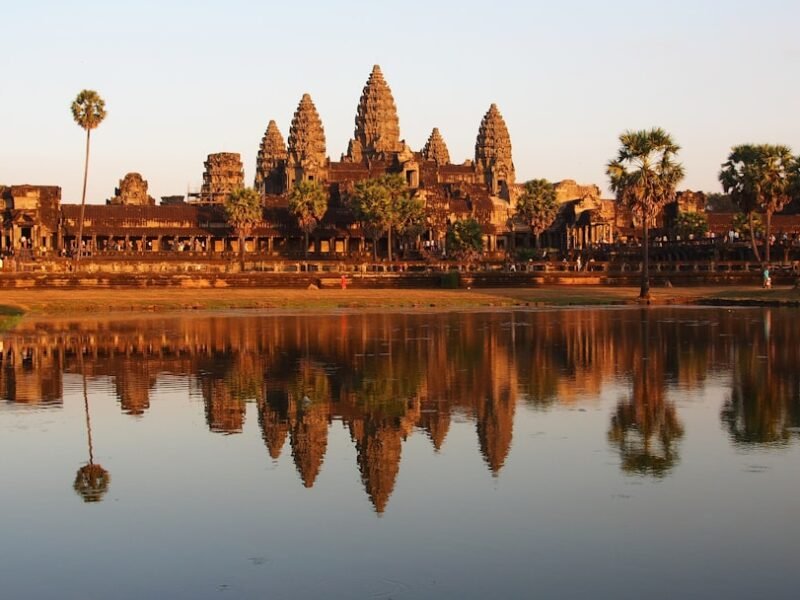Selecting the perfect destination for a small group adventure is a critical first step that can significantly influence the overall experience. The choice of location should align with the interests and physical capabilities of all group members. For instance, if the group is composed of avid hikers, destinations like the Inca Trail in Peru or the Appalachian Trail in the United States may be ideal.
Conversely, if the group prefers a more relaxed pace, exploring the cultural richness of cities like Kyoto or Barcelona could be more suitable. It’s essential to engage all members in discussions about potential destinations, ensuring that everyone feels included and excited about the journey ahead. Moreover, considering the time of year and climate is vital when choosing a destination.
Certain locations may be more appealing during specific seasons; for example, visiting the cherry blossoms in Japan during spring or experiencing the Northern Lights in Iceland during winter can create unforgettable memories. Additionally, researching local events or festivals can enhance the experience, providing unique opportunities to engage with the culture. Ultimately, the right destination should not only cater to the group’s interests but also offer a variety of activities that can accommodate different preferences and energy levels.
Packing Essentials for Small Group Adventure Travel
Packing for a small group adventure requires careful consideration to ensure that everyone is well-prepared without overburdening themselves with unnecessary items. Each member should create a packing list tailored to the specific activities planned, taking into account factors such as climate, terrain, and duration of the trip. Essential items typically include sturdy footwear, weather-appropriate clothing, and personal items like toiletries and medications.
It’s also wise to pack lightweight gear that can be easily transported, such as compact sleeping bags or travel-sized cooking equipment for camping trips. In addition to personal items, group members should coordinate on shared supplies to minimize redundancy. For example, if several people are bringing a first aid kit or cooking utensils, it may be more efficient for one person to take responsibility for these items.
This not only lightens individual loads but also fosters a sense of teamwork and collaboration within the group. Furthermore, packing versatile clothing that can be layered or mixed and matched can help individuals adapt to changing conditions while keeping luggage manageable.
Understanding Group Dynamics and Etiquette

Navigating group dynamics is crucial for ensuring a harmonious adventure experience. Each member brings their own personality, preferences, and communication styles to the table, which can lead to both enriching interactions and potential conflicts. Establishing clear communication from the outset can help mitigate misunderstandings.
Setting expectations regarding decision-making processes—whether through consensus or majority rule—can empower everyone to voice their opinions while fostering a sense of ownership over the trip. Etiquette plays a significant role in maintaining positive relationships within the group. Simple gestures such as being punctual for scheduled activities, respecting personal space, and being considerate of differing energy levels can go a long way in creating a supportive environment.
Additionally, it’s important to practice active listening and empathy; acknowledging each person’s feelings and perspectives can help build trust and camaraderie. By fostering an atmosphere of respect and understanding, groups can navigate challenges more effectively and create lasting memories together.
Researching and Booking the Right Tour Company
| Criteria | Metrics |
|---|---|
| Customer Reviews | 4.5/5 average rating |
| Number of Tours Offered | Over 100 tours available |
| Booking Options | Online booking, phone booking |
| Customer Support | 24/7 customer service available |
| Price Range | 50 – 500 per tour |
When embarking on an adventure with a small group, selecting the right tour company is paramount to ensuring a smooth and enjoyable experience. Researching potential companies involves examining their reputation, customer reviews, and safety records. Websites like TripAdvisor or specialized travel forums can provide valuable insights into other travelers’ experiences.
It’s also beneficial to look for companies that specialize in small group travel, as they often offer more personalized service and tailored itineraries compared to larger operators. Once potential companies have been identified, it’s essential to inquire about their policies regarding group sizes, guides’ qualifications, and included amenities. A reputable tour company should provide clear information about what is covered in the package—such as accommodations, meals, transportation, and activities—allowing the group to make informed decisions based on their budget and preferences.
Additionally, engaging directly with company representatives can help gauge their responsiveness and willingness to accommodate specific requests or concerns.
Embracing the Local Culture and Customs
One of the most enriching aspects of adventure travel is the opportunity to immerse oneself in local cultures and customs. Encouraging group members to engage with local communities can lead to meaningful interactions and a deeper understanding of the destination. This might involve participating in traditional ceremonies, trying regional cuisines, or learning basic phrases in the local language.
Such experiences not only enhance personal growth but also foster respect for cultural diversity. Moreover, being mindful of local customs is essential for demonstrating respect and appreciation for the host culture. This includes understanding social norms such as dress codes when visiting religious sites or practicing appropriate behavior during local festivals.
Engaging with local artisans or guides can provide unique insights into their way of life while supporting sustainable tourism practices. By embracing these cultural elements, travelers can create lasting connections that enrich their adventure beyond mere sightseeing.
Staying Safe and Healthy During Your Adventure

Prioritizing safety and health during an adventure is crucial for ensuring a positive experience for all group members. Before embarking on the journey, it’s advisable to research any health risks associated with the destination, such as required vaccinations or prevalent diseases. Carrying a well-stocked first aid kit tailored to the group’s needs can help address minor injuries or illnesses that may arise during travel.
In addition to physical health considerations, staying safe involves being aware of one’s surroundings and practicing common sense precautions. This includes safeguarding personal belongings in crowded areas, avoiding risky behaviors such as wandering alone at night, and adhering to local laws and regulations. Establishing a buddy system within the group can enhance safety by ensuring that no one is left behind or isolated during excursions.
By fostering an environment where everyone looks out for one another, groups can navigate challenges more effectively while enjoying their adventure.
Making the Most of Your Free Time
Free time during an adventure trip presents an excellent opportunity for individuals to explore personal interests while still being part of a cohesive group experience. Encouraging members to pursue their passions—whether it’s photography, hiking, or simply relaxing—can lead to a more fulfilling journey. It’s beneficial to create a flexible itinerary that allows for both structured activities and unstructured time, enabling individuals to recharge or explore at their own pace.
Additionally, utilizing free time for spontaneous adventures can lead to unexpected discoveries that enrich the overall experience. This might involve wandering through local markets, joining impromptu workshops, or simply enjoying quiet moments in nature. Sharing these experiences with fellow group members can foster deeper connections and create shared memories that enhance group cohesion.
By balancing individual pursuits with collective activities, travelers can ensure that everyone feels satisfied with their adventure.
Reflecting and Learning from Your Experience
After returning from an adventure trip, taking time to reflect on the experience can provide valuable insights that contribute to personal growth and future travels. Encouraging group members to share their thoughts on what they enjoyed most or what challenges they faced can foster open dialogue and strengthen relationships within the group. This reflection process not only helps individuals appreciate their experiences but also allows them to identify areas for improvement in future trips.
Documenting experiences through journaling or photography can serve as a tangible reminder of the journey taken together. Sharing these reflections with others—whether through social media or travel blogs—can inspire others to embark on similar adventures while also reinforcing one’s own learning process. Ultimately, reflecting on an adventure allows travelers to carry forward lessons learned and memories made into future explorations, enriching their understanding of both themselves and the world around them.
FAQs
What is small group adventure travel?
Small group adventure travel refers to traveling with a small group of people, typically around 10-15 individuals, to explore and experience new destinations and activities. This type of travel often involves outdoor activities, cultural immersion, and off-the-beaten-path experiences.
What are the benefits of small group adventure travel?
Small group adventure travel offers the opportunity to connect with like-minded individuals, access to local guides and experts, and the ability to participate in activities that may be challenging to organize independently. It also allows for a more intimate and immersive travel experience.
What should beginners consider when planning a small group adventure trip?
Beginners should consider their fitness level, travel preferences, and comfort with group dynamics when planning a small group adventure trip. Researching the destination, understanding the itinerary, and packing appropriate gear are also important factors to consider.
How can beginners prepare for a small group adventure trip?
Beginners can prepare for a small group adventure trip by staying active and improving their fitness level, familiarizing themselves with the destination and its culture, and packing essential items such as appropriate clothing, footwear, and gear. It’s also important to communicate with the tour operator or group leader to understand the trip’s requirements and expectations.
What are some tips for beginners on a small group adventure trip?
Some tips for beginners on a small group adventure trip include being open-minded and flexible, respecting the local culture and environment, staying hydrated and well-rested, and communicating openly with the group and tour leader. It’s also important to be mindful of personal safety and to follow the guidance of the group leader and local experts.


